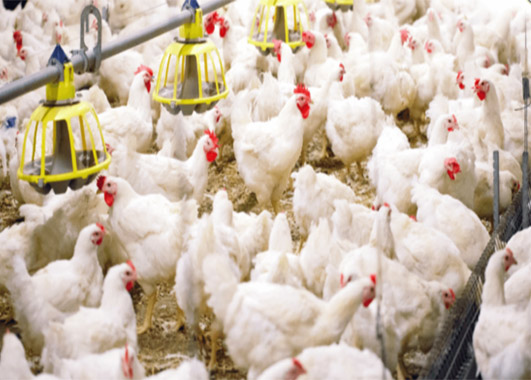Water is a very important substance for the growth and development of chickens in poultry farming equipment ,and water as a solvent, the metabolic utilization of nutrients and the discharge of metabolic waste, participate in body temperature regulation; act as a lubricant in the body. Water is also a constituent of eggs.

1. The water needs of the chicken can be met by the endogenous water produced by the water, drinking water and nutrient end products in the feed. In order to maintain the optimal growth rate and production performance of the chicken and improve the feed utilization rate, it is necessary to clean the drinking water. In general, the amount of water in the chicken is related to the feed. In the case of feeding the compound feed, the water supply of the chicken should be 2-2.5 times of the quality of the dried food and 1.5-2 times of the laying hen. Or the chicken can supplement the body water by feeding the feed.
2. The demand for water in chickens is continuous, and fresh drinking water must be supplied adequately. If the supply is not timely, it will affect production and health. When the water loss in the chicken is 10%, it will cause death. The laying hens responded more to the lack of water. The water was cut off for 24 hours, the egg production rate dropped by 30%, and the water was cut off for 48 hours. Broiler drinking water 20%-50% will seriously affect production and feed remuneration.
3. Factors Affecting Drinking Water Fresh drinking water is an important way to meet the water requirements of chickens. The amount of water consumed by chickens is also affected by many factors. Temperature: Temperature is one of the factors that affect the water demand of chickens. When the temperature is too high, the chicken begins to wheezing, the amount of water evaporated from the lungs increases, the amount of drinking water increases significantly, and the feed intake decreases.
4. It is necessary to pay attention to the amount of drinking water supplied to the chicken, and not to ignore the quality of the water. Drinking water requires fresh, no pathogens and pesticide residues. Because unqualified drinking water and non-drinkable water can interfere with the absorption of nutrients in the feed and the exertion of antibacterial effects, it may even affect appetite, cause diarrhea, and cause chickens to become sick or even die in severe cases.









